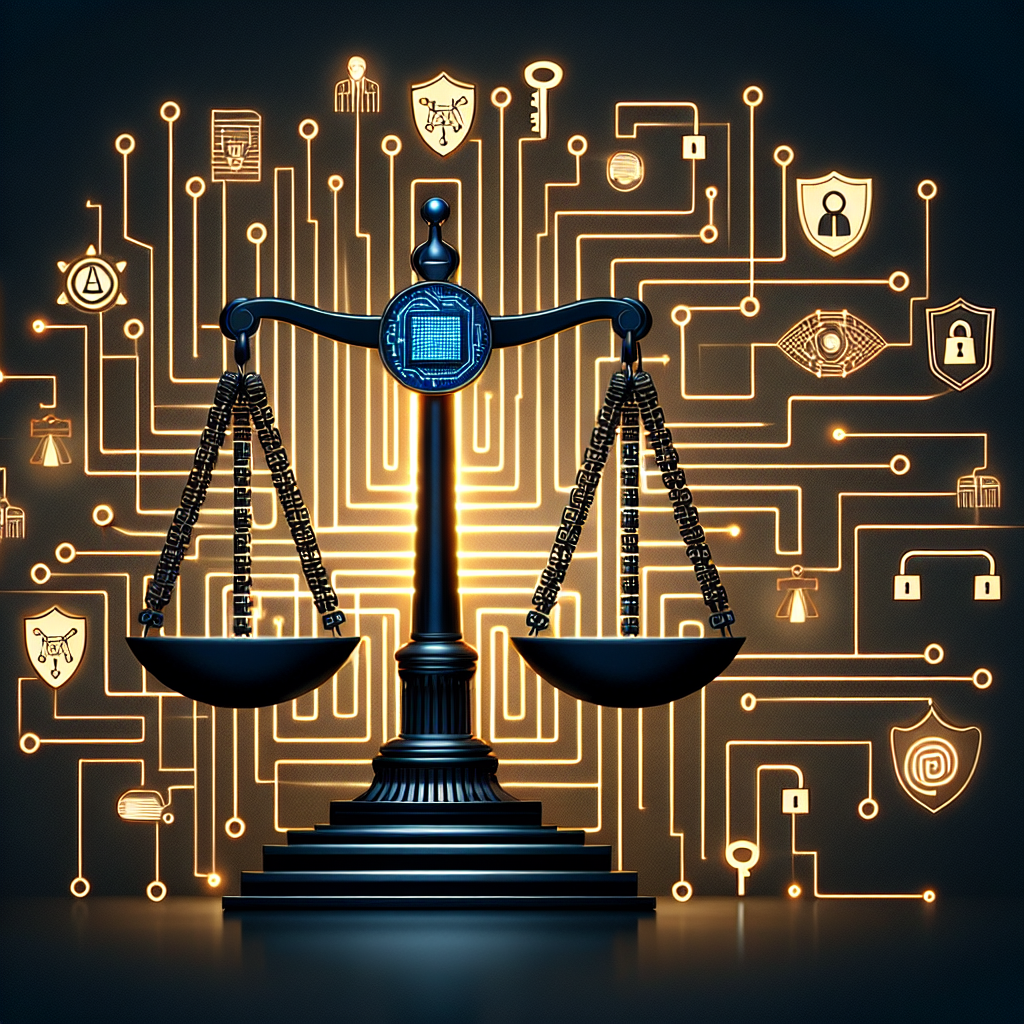Artificial intelligence (AI) has rapidly become an integral part of our daily lives, from virtual assistants like Siri and Alexa to personalized recommendations on online shopping platforms. While AI offers many benefits, including improved efficiency and convenience, it also raises concerns about privacy. With the vast amount of data being collected and analyzed by AI systems, there is a growing need to navigate the legal landscape surrounding AI and privacy.
One of the primary concerns with AI and privacy is the potential for data breaches and unauthorized access to personal information. As AI systems become more sophisticated and capable of processing large amounts of data, the risk of data breaches increases. This can lead to sensitive information being exposed, such as financial records, medical histories, and personal communications.
To address these concerns, many countries have implemented laws and regulations to protect individuals’ privacy rights in the age of AI. For example, the European Union’s General Data Protection Regulation (GDPR) sets strict guidelines for how companies can collect, store, and use personal data. The GDPR requires companies to obtain explicit consent from individuals before collecting their data, and gives individuals the right to access, correct, and delete their personal information.
In the United States, there are also laws in place to protect individuals’ privacy rights, such as the Health Insurance Portability and Accountability Act (HIPAA) and the Children’s Online Privacy Protection Act (COPPA). These laws regulate how companies can collect and use sensitive information, such as medical records and data from children under the age of 13.
Despite these regulations, there are still challenges in navigating the legal landscape surrounding AI and privacy. One of the main challenges is the rapid pace of technological advancement, which often outpaces the development of new laws and regulations. This can create a gap in regulation, leaving individuals vulnerable to privacy breaches.
Another challenge is the global nature of AI technology, which can make it difficult to enforce privacy laws across different jurisdictions. For example, a company based in the United States may collect data from individuals in Europe, leading to conflicts between US and EU privacy regulations.
To address these challenges, companies and policymakers must work together to develop comprehensive and up-to-date privacy policies that protect individuals’ rights while still allowing for innovation and growth in the AI industry. This may involve implementing new technologies, such as encryption and blockchain, to secure data and ensure compliance with privacy regulations.
In addition to legal regulations, there are also ethical considerations that must be taken into account when implementing AI systems. For example, companies must ensure that their AI algorithms are fair and unbiased, and do not discriminate against certain groups of individuals. This requires transparency and accountability in the development and deployment of AI technology.
Overall, navigating the legal landscape surrounding AI and privacy requires a multi-faceted approach that combines legal regulations, ethical considerations, and technological solutions. By working together, companies, policymakers, and individuals can ensure that AI technology is used responsibly and ethically, while still reaping the benefits of innovation and efficiency.
FAQs:
Q: Can AI systems access my personal information without my consent?
A: In many cases, AI systems require explicit consent from individuals before collecting their personal information. However, there have been instances of data breaches and unauthorized access to personal information by AI systems. It is important to be vigilant about privacy settings and permissions when using AI technology.
Q: How can I protect my privacy when using AI systems?
A: There are several steps you can take to protect your privacy when using AI systems, such as reviewing privacy policies and settings, limiting the amount of personal information you share, and using secure passwords and encryption.
Q: What rights do I have regarding my personal data collected by AI systems?
A: Depending on the jurisdiction, you may have rights to access, correct, and delete your personal data collected by AI systems. It is important to familiarize yourself with privacy regulations in your country and exercise your rights when necessary.
Q: How can companies ensure that their AI systems are fair and unbiased?
A: Companies can ensure that their AI systems are fair and unbiased by implementing transparency and accountability measures in the development and deployment of AI technology. This may involve conducting regular audits and reviews of AI algorithms, and addressing any biases or discrimination that may arise.

